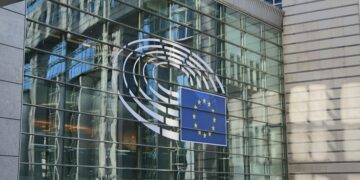The Inspector General of Police, Kayode Egbetokun, has been given a seven-day ultimatum by the Nigeria Bar Association Section on Public Interest to revoke the order compelling car owners to register their vehicles and pay a minimum of N6,000 for a Central Motor Information System Certificate.
The Nigeria Police Force issued CMRIS Certificates, but NBA-SPIDEL questioned the legal foundation for doing so, claiming that no law had given the police the right to provide such licences or certificates to car owners after the vehicles were registered at the proper places.

It called for an immediate end to the CMRIS Certificates’ issuance and enforcement, and it urged the Inspector General of Police to issue a directive to suspend the practice across the country.
The group further demanded that the physical registration locations and registration website be shut down, and that individuals who had already paid for their registrations receive a refund.
The request was made in a letter co-signed by NBA-SPIDEL Secretary Funmi Adeogun and Chairman John Aikpokpo-Martins and addressed to the Inspector General of Police.
According to the statement,
“Any such certificate issued by the Nigeria Police Force without legal backing is purely illegal, void, and has no bearing on anything.” It was stressed that collecting money or awarding certificates to car owners is not part of the police’s obligation to safeguard the public and uphold the law.
It was stressed that collecting money or awarding certificates to car owners is not part of the police’s obligation to safeguard the public and uphold the law.
They denounced the exploitation of Nigerians’ ignorance, which led to extortion during roadside searches. It stated: “Failure, neglect, or refusal to comply with this lawful demand within seven days of receipt of this letter will compel NBA-SPIDEL to seek appropriate sanctions in court against your esteemed office and the Nigeria Police Force.”
Kayode Egbetokun, the Inspector General of Police, has mandated that the Central Motor Registry be digitalized by July 29, 2024. He claims that by doing this, the motor vehicle registration system will be modernised and made more digital, strengthening the safety and security framework of the country. To combat car-related crimes such as terrorism, banditry, kidnapping, and armed robbery, and to support police investigations and operational actions, the e-CMR is a state-of-the-art, real-time online repository of motor vehicle data.
The police claim that the adoption of a digitalized system will expedite the paperwork and ownership verification procedures for vehicles and associated transactions.
According to a statement issued on Saturday by Force spokesperson Muyiwa Adejobi, the e-CMR system will make services such as ownership change, licence number, engine, and chassis/body seamless, ensuring vehicle genuineness, assisting in tracking and recovery of stolen vehicles, and preventing the sale of stolen vehicles to innocent buyers. The statement read in part, “As part of the IG’s efforts to improve the security of lives and property, the Nigeria Police Force is set to begin enforcing the digitalized Central Motor Registry (e-CMR) within the next 14 days, specifically on July 29, 2024, to rejuvenate and digitalize the motor vehicle registration system, significantly strengthening our nation’s safety and security framework.
What they’re saying
“Following the directives of the IGP, services such as change of ownership, change of licence number, change of engine, and change of chassis/body would become seamless as the e-CMR system would ensure the validation of vehicle genuineness and ownership, enhancing the ability to track and recover stolen vehicles effectively, and preventing the purchase of stolen vehicles by innocent buyers.”
Bottom Line
The Inspector General’s push to digitalize the Central Motor Registry (e-CMR) aims to enhance vehicle-related security and streamline processes. While modernization efforts can improve efficiency and security, they must be grounded in proper legal frameworks to avoid misuse and ensure public trust.

















